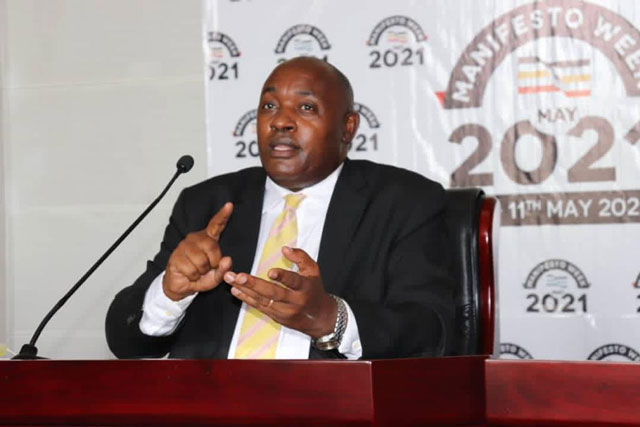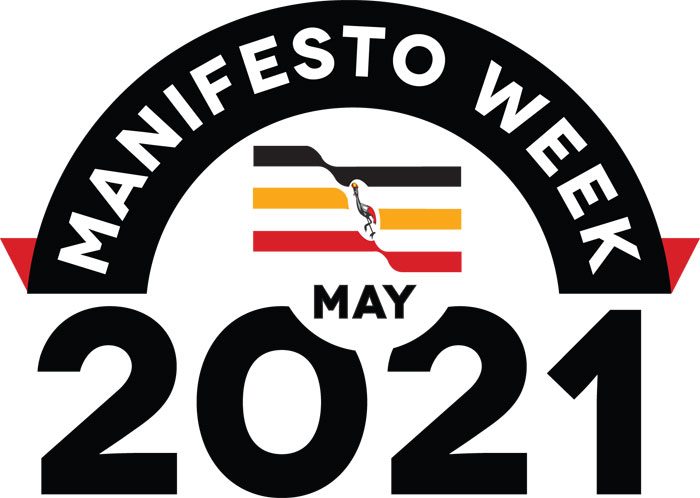
NRM MANIFESTO WEEK | Land is a crucial factor in Uganda’s development agenda. This calls for stability and security of land tenure system. And, the Ministry of Land, Housing and Urban Development is live to this fact since it has been working hard to create an enabling environment to enable all Ugandans enjoy their rights to land.
Over the manifesto period 2016 -2021 the ministry decentralized the registration of land 22 Ministry Zonal Offices (MZOs) have been established Country wide to take land services closer to the people. These MZOs are facilitating the creation of an efficient and effective land administration system. Some of these MZOs are located in the following districts; Kampala (KCCA), Mukono, Masaka, Mityana, Luwero, Mpigi, Wakiso (Wakiso-Busiro and Wakiso-Kyadondo), Jinja, Mbale, Lira, Tororo, Soroti and Moroto, among others.
“MZOs are fully operational and functional and provide the same services as those provided at the Ministry headquarters in Kampala. The MZOs have tremendously reduced on the distance, time and cost of doing business whilst carrying out land transactions,” said Dr. Chris Baryomunsi, the State Minister for Housing, said while presenting the achievements of the Ministry of Land, Housing and Urban Development during the NRM Manifesto Week 2021.

He also revealed that all freehold, leasehold and Mailo titles have been digitalized and entered into the Land Information System (LIS). Certificates of Customary Ownership (CCOs) have also been digitalized. This is aimed at minimizing fraud and double titling which has been a major concern in recent years.
The Ministry of Land also built a Records and Archival Centre at Entebbe, for safe custody of all land records and a National Land Information Centre are fully operational to support the development and implementation of the Land Information System (LIS). Working with Uganda Registration Services Bureau (URSB), the Ministry of Land established a one stop centre where search letters are issued in less than 2 hours.
In terms of legislation, the Ministry Finalized the development of the National Land Acquisition, Resettlement and Rehabilitation Policy which addresses key issues relating to land acquisition, resettlement and rehabilitation of Project Affected Persons (PAPs). Also concluded is stakeholder consultations on the draft Land Acquisition Bill, 2019, the Bill seeks to repeal the current Land Acquisition Act, Cap 226 and make the acquisition of land for Government infrastructure projects expeditious.
“This is aimed at speeding up development and avoid delays that are caused by project affected persons that demand for unreasonable compensation,” said Dr Baryomunsi.
The ministry has also drafted the Uganda Land Commission Bill which is due for presentation to Cabinet for consideration and approval and thereafter will be submitted for debate and enactment.
To beef up security of land ownership, the occupants of communal land are being issued with Communal Certificates of ownership which are a big a relief to land owners. So far the ministry has Incorporated a total of 606 Communal Land Associations (CLAs) as legal entities in order to be able to register their customary land in the districts of Kaabong, Kotido, Moroto, Napak, Amudat, Kakumiro, Masindi, Kikuube, Buliisa, Agago, Pader, Nwoya, Mubende, Kayunga.
Only legal entities under the law can hold and own customary land. The total number of customary land owners registered under CLAs is 3,602,321. Dr. Baryomunsi revealed that: “over 20,000 Certificates of Customary Ownership (CCOs) have been issued to customary land owners in Kasese, Nwoya, Pader, Soroti, Katakwi, Butaleja, Adjumani and Kabale districts,” the minister noted.
To strengthen institutions and mechanisms for land dispute resolution and mediation, a Dispute Resolution Desk has been established in the Ministry which handles dispute related to land matters. The ministry also issued eviction guidelines during COVID 19 pandemic lockdown to protect occupants from illegal land evictions as a means of protecting people and their properties.
Training has been completed for all approved District Land Boards (DLBs) in the Country. At the same time, the ministry collaborated with JLOS institutions and other stakeholders in addressing issues related to access to justice, alternative dispute resolution and support to the reduction of land related case back log. A Commission of Inquiry into land matters was established, carried out investigations and a report is being prepared.
The capitalization of the Land Fund has been increased from Shs42 billion in 2016 to Shs115billionin 2021. Part of the money of this fund has helped in resolving historical land injustices in Tooro, Buganda, Ankole and Bunyoro by buying land from absentee Landlords.
So far 236,036 acres has been bought using the Land Fund. The land will be allocated to lawful and bonafide occupants and regularize their land rights. The Ministry has acquired 33,036 acres of land from absentee landlords for redistribution to lawful and bona fide occupants. This adds to the stock of 236,036 acres of land that had been acquired.
Over 300 land titles were processed and issued to lawful and bonafide occupants in Kibaale and over 300 land titles to tenants in Nakaseke district. This followed the regularization of the land rights of lawful and bonafide tenants in Bunyoro (Kibaale) and Buganda region (Nakasongola and Nakaseke).
Working with GIZ (RELAPU) the Ministry has carried out sensitization and mapping of tenants on mailo land in Mityana, Mubende and Kassanda in the subcounties of Bulera (8,963), Kikandwa (1,545), Bukuya (6,034), Kiyuni (3,579), Kakindu (1,010), Maanyi (5,750), Kiganda (4,311), Myanzi (4,734), Kigando (5,936), Nabingoola (5,686), Malangala (906), and Kasambya (1,900).
As a result, the first ever batch of Certificates of Occupancy for bibanja owners on Mailo land for 200 households are ready for issuance in Kassanda (Myanzi subcounty).
Challenges faced by the ministry in implementing the manifesto commitments include: the high cost of mortgage financing because the commercial banks lend at high interests, encroachment on government land, slums among others. To curb the growing slums, the Government is working on a master plan for new cities to avoid the challenge of slums.
 The Independent Uganda: You get the Truth we Pay the Price
The Independent Uganda: You get the Truth we Pay the Price



